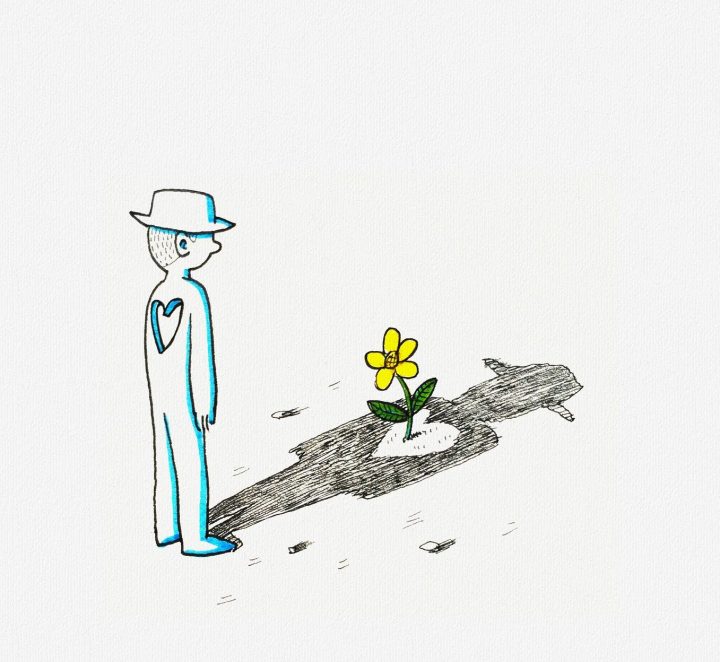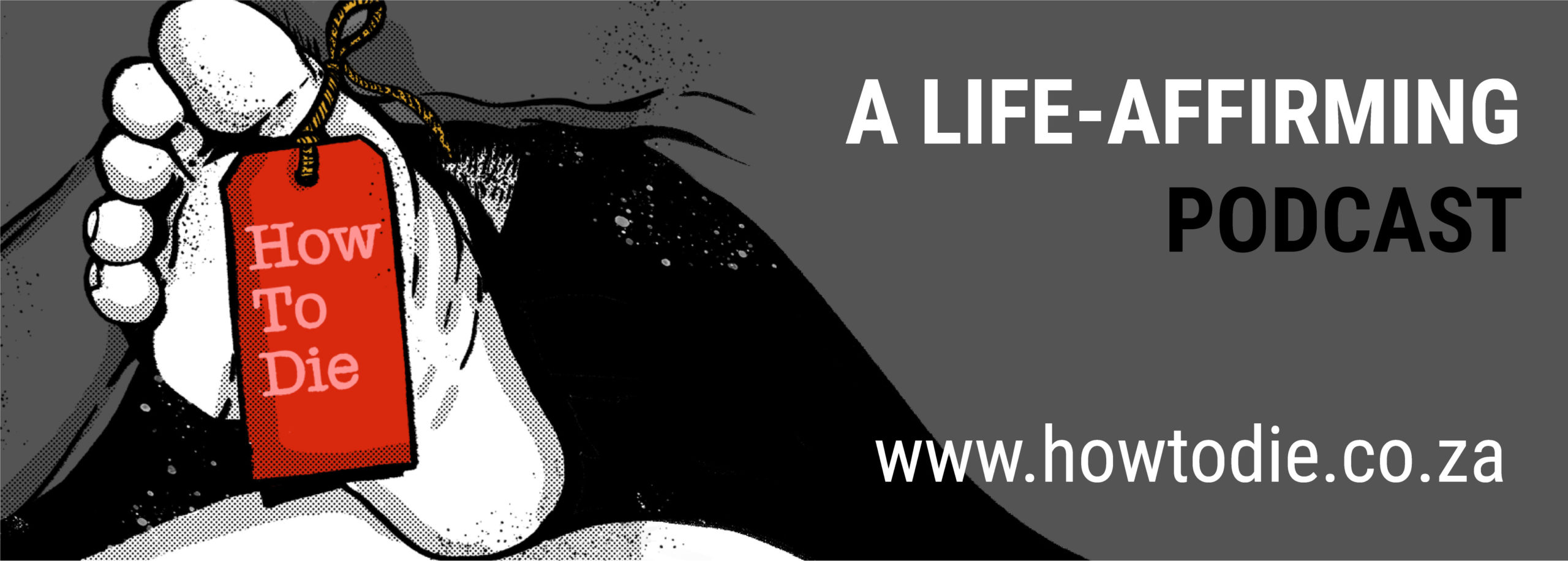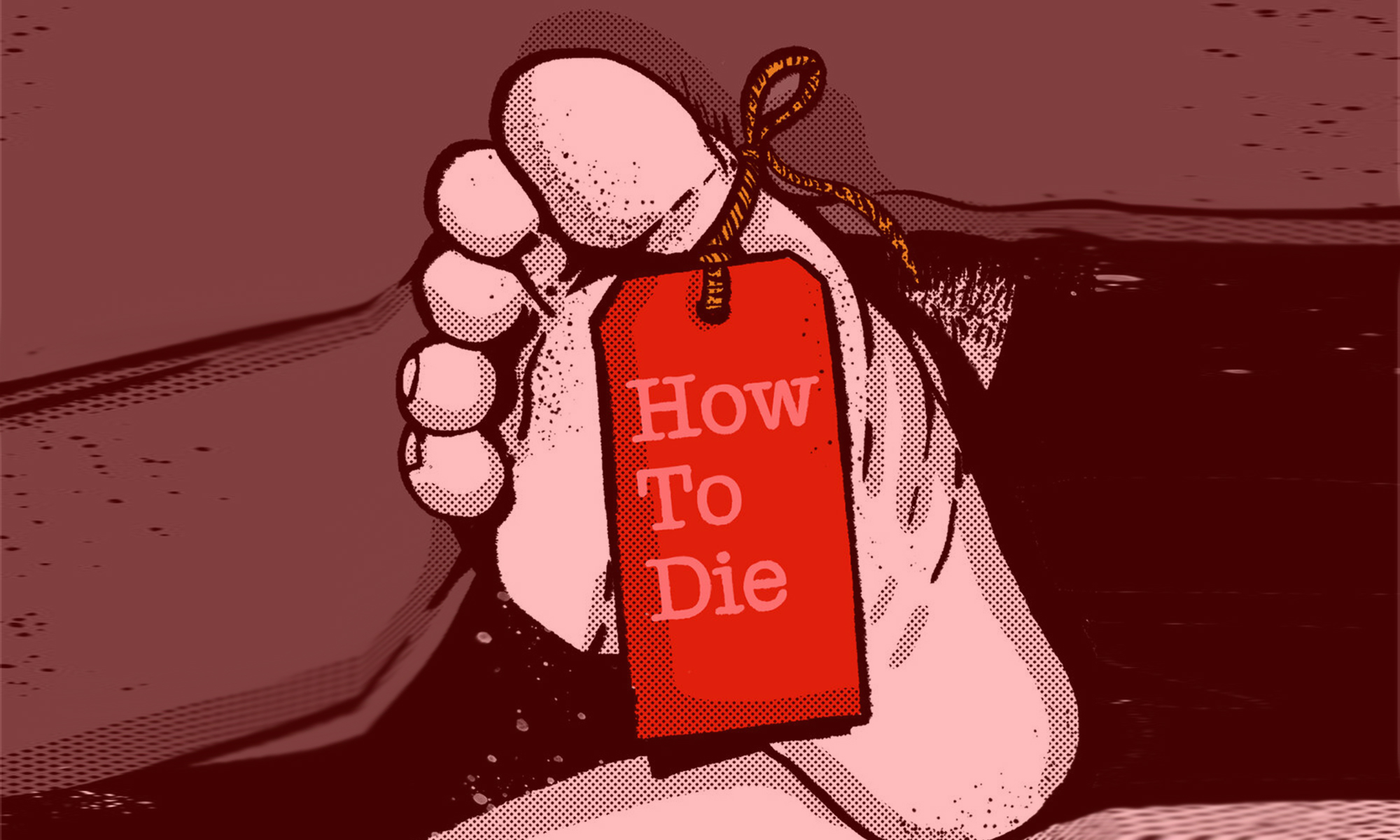Maverick Life
On talking about death as an appreciation of life

‘How to Die’ is a local podcast hosted by death doula Sean O’ Connor, who believes that talking about death is good for life.
“I do not fear death. I had been dead for billions and billions of years before I was born, and had not suffered the slightest inconvenience from it.” – Mark Twain.
Most people don’t want to die. Even people who believe they have an undying soul that will spend eternity in the kingdom of heaven don’t want to die to get there.
Fear of death is one of the most powerful instincts – it permeates every aspect of human culture and behaviour, and yet it is an almost universal taboo.
We often live in denial of our mortality – we tell ourselves reassuring stories about life after death; we tell our loved ones that they will get better and everything will be ok; and we tell our children as little as possible, shielding them from the truth, under the assumption that confronting the inevitable is the death of childhood.
But death is having a bit of a moment. The global fight against the spread of Covid-19 has made it almost impossible to avoid the collective awareness of death.
Every masked stranger we meet is a reminder that our actions impact the spread of the virus and consequently the lives and deaths of others. Presently, we are as anxious as ever about the safety of our loved ones, but talking about that anxiety with any more sincerity than humorous, self-detrimental quips still tends to be a silver bullet conversation killer.
The core message of the local podcast How To Die, is that talking about death is good for life. It’s part of a growing trend of ‘deathcasts’ and very much a part of the “death positive” movement.
Each 35-minute episode features an interview with someone who often meets others on the edge of life, including a palliative care counsellor, a tombstone maker, a traditional healer, an imam, a funeral consultant, and a biker.
“Your mortal host,” Sean O’ Connor is a death doula – he provides physical, emotional and spiritual support to people who are approaching the end of their lives. The word ‘doula’ usually refers to someone who provides guidance to a pregnant mother during labour.
The choice to use the name ‘death doula’ or ‘soul midwife’ for someone who coaches you on how to die, comes from a “death-positive” perspective. Death, like birth, is just another metamorphic stage of life.
O’ Connor became acquainted with death early on in his life because his father had chronic heart disease. “Growing up, my father’s mortality was very much in focus for me. He really sucked the marrow from the bones of life because he knew that his life was quite precarious. I became fascinated with the death happening around me growing up in Joburg, and then going to varsity and becoming aware of the institutional violence that our government was perpetrating. I was conscripted, I became an objector, and it was all about violence and war, but death was something hidden on the border.”
Years later, O’ Connor heard about Death Cafés, scheduled gatherings where strangers talk about death over tea and cake to “increase awareness of death with a view to helping people make the most of their finite lives”. He contacted the creator and resolved to start his own local death café in Cape Town, which he ran for several years.
“At a death café, you only have to ask one question: Go around the room and you just say your name and what brought you here tonight. People spoke about what they were scared of – scared of being a parent, scared of being a child, of parents who’re growing old, or they may have lost friends.
“It was to break the taboo about speaking about death. And there was this huge release. People would sometimes burst into song or laughter or tears and it was quite transformative. Don’t worry about getting all heavy because death is such a taboo. That’s what I discovered hosting these evenings. I discovered that talking about death was good for life.”
O’ Connor doesn’t try to be definitive or profound or exhaustive in his podcast, it’s sometimes quite playful. “Death is such a mystery, no one has come back and told us what happens, and I think people kind of think it’s optional until it happens to them. We have major death denial, although I do think that’s shifting profoundly. I simply want to honour my guests, who are remarkable people. My mission is to encourage conversation about death. As soon as the topic of death arises, life comes into focus. So, it could be called life-affirming, I think.”
On a personal note, and shortly after I began writing about the How To Die podcast, I discovered that after six gruelling months of procedures and optimism, my beloved uncle, Paul Turok, was approaching the end of his life. Now, as my article is near completion, I have been told that Uncle Paul has died.
Paul lived half a world away from much of his family, so Covid denied us our instinctive desire to be close to him near the end. Many of us attended his funeral virtually, a surreal experience that does little to subside the inevitable shock that one feels from the finality of a death, no matter how long one had to prepare for it.
We are mourning for him that he could not enjoy as long a life as he deserved, and yet the life he did enjoy was as good a life as anyone could wish for. He was an accomplished architect with a positively beaming disposition and a bubbly, loving family. In a way our sadness is more for ourselves and for his family, who will never again get to bask in his warmth and jolly laughter.
Near the end of Paul’s life, everyday people were asking him how he was doing, and though he was confused and tired and struggling, time after time he would give the same answer: “I’m faaaaantastic!”
I’ve been thinking about that a lot, trying to understand what it meant. His health was certainly not fantastic, and he would give that reassurance even when he was very uncomfortable or the doctors had just given bad news. Was he just saying that because he didn’t want us to worry? Was he encouraging his own body to recover, saying it to make it so? Or was he simply in denial of his mortality? It was probably a bit of all of those, but the more I think about it, the more I suspect that primarily, it was because he genuinely was fantastic.
Paul lived his life with such love and appreciation that not even death could get him down. Perhaps what people really mean when they speak about someone having a “good death” is that they had a good life, and they knew it.
Writing this article, listening to the How To Die podcast and thinking about death with blunt honesty that I have seldom granted myself in the past, have all helped me find meaning in the loss of my wonderful Uncle Paul.
Of course, I feel sad for myself that he died, but I also feel so happy for him that he lived, and he knew it, and he loved it.
Finding meaning in death, and making peace with it, is not contingent on the grand promises of faith, the legacy of the deceased or even the nature of a death itself; but it is far more difficult if you do not confront it. It’s ok to be afraid of death – it’s almost impossible not to be, but it’s not going to disappear if we don’t talk about it. Talking about death truly is good for life. DM/ ML

Original design by Jade Klara
How To Die is available at howtodie.co.za, and on Apple Podcasts and Spotify.


















 Become an Insider
Become an Insider
“Grief is not a feeling, grief is a skill
And grief has a twin, Praise of Life. They walk side-by-side.”
Stephen Jenkinson, author of Die Wise – A Manifesto for Sanity and Soul